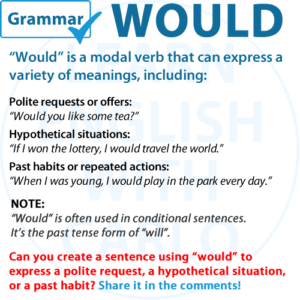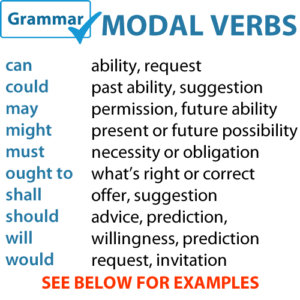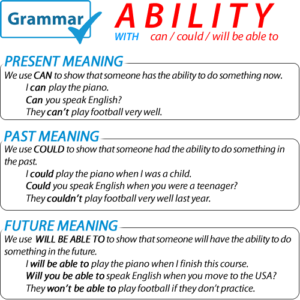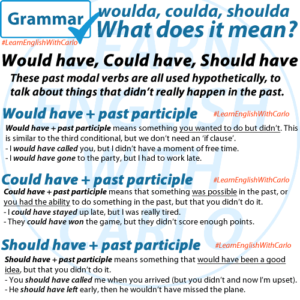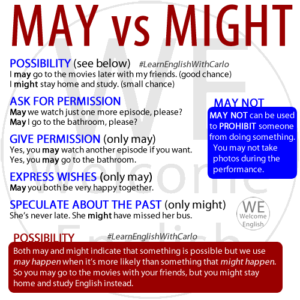Modal verbs play a crucial role in shaping the meaning and tone of our language. Among these, “would” stands out as a versatile tool with a myriad of uses and implications. In this blog post, we’ll delve into the depths of “would”, exploring its various meanings, functions, and usage in everyday language. Understanding “Would”: At …
Category: MODAL VERBS
Permanent link to this article: https://englishyourway.com.br/mastering-the-modal-understanding-the-versatility-of-would/
Nov 15
GRAMMAR – Modal Verbs
What Are Modal Verbs? Modal verbs are auxiliary (helping) verbs that express possibility, necessity, ability, permission, and other attitudes toward the action of the main verb. Unlike regular verbs, modal verbs do not change form based on the subject (e.g., “I can,” “he can”). They are always followed by the base form of the main …
Permanent link to this article: https://englishyourway.com.br/grammar-modal-verbs/
Oct 08
Understanding Ability in English: CAN, COULD, and WILL BE ABLE TO
In English, we use different forms to express someone’s ability to do something, whether in the present, past, or future. Let’s explore how CAN, COULD, and WILL BE ABLE TO are used to talk about ability. 1. CAN – Ability in the Present We use CAN to show that someone has the ability to do …
Permanent link to this article: https://englishyourway.com.br/ability-can-could-will-be-able-to/
Sep 18
Woulda, Coulda, Shoulda – What Does It Mean?
You may have heard native English speakers use phrases like woulda, coulda, or shoulda. But what do they mean? These are informal, spoken forms of would have, could have, and should have. These past modal verbs are used to talk about things that didn’t happen, but that we imagine or wish had been different. Let’s …
Permanent link to this article: https://englishyourway.com.br/woulda-coulda-shoulda/
Oct 02
May vs. Might: Understanding the Difference
In English, both may and might are modal verbs used to indicate possibility. However, they aren’t interchangeable in all situations. Knowing when to use each one can improve the accuracy and clarity of your communication. May: A Stronger Possibility May is often used when something is more likely to happen. When we say something may …
Permanent link to this article: https://englishyourway.com.br/may-vs-might-difference/

